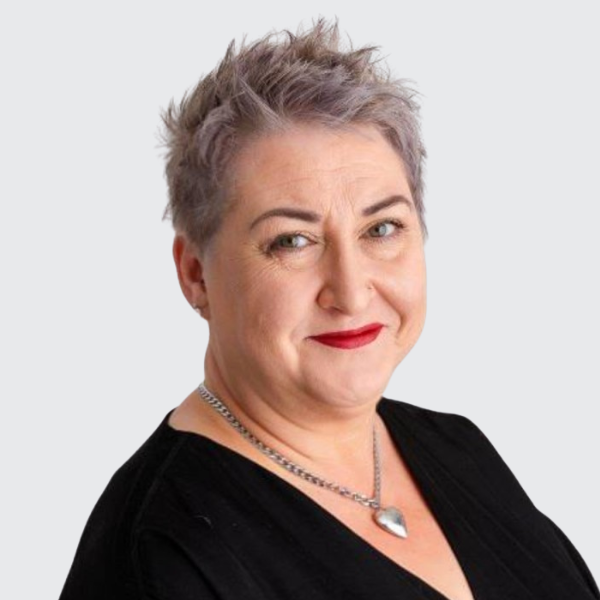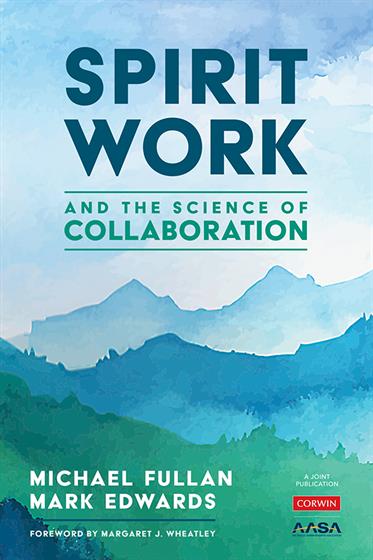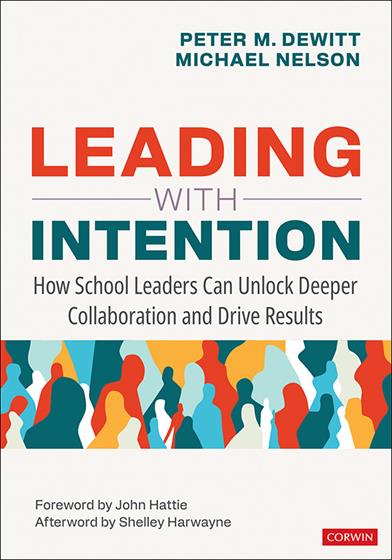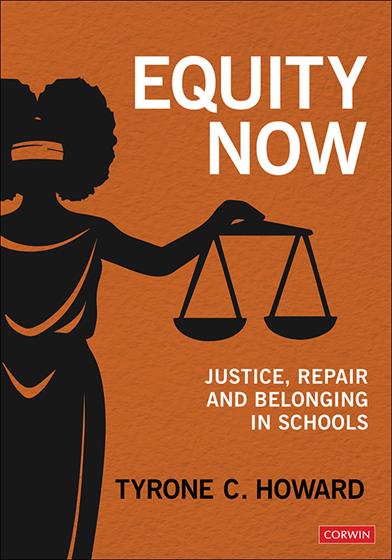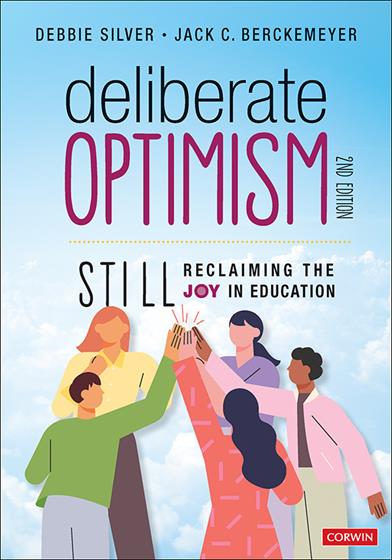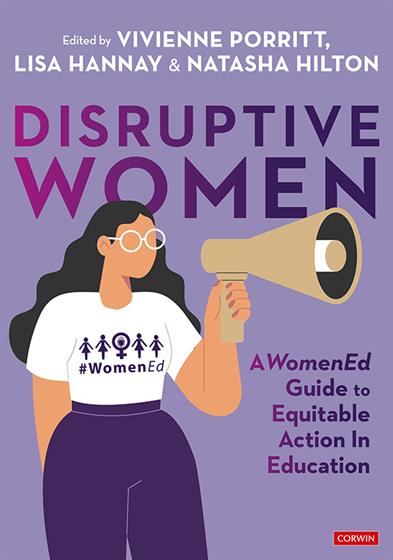LCL_8_07L
[00:00:00.60] ANNOUNCER: Welcome to Corwin's Leaders Coaching Leaders
Podcast with hosts Peter DeWitt and Michael Nelson. This podcast is from
education leaders for education leaders. Every week, Peter, Mike, and our
guests get together to share ideas, put research into practice, and ensure that
every student is learning not by chance, but by design.
[00:00:25.98] PETER DEWITT: Michael Nelson.
[00:00:28.03] MICHAEL NELSON: Peter, we're back here doing another podcast.
I think it's going to be a good one.
[00:00:32.47] PETER DEWITT: I think it is going to be a good one. In fact,
let's face it, we know it's going to be a good one because we've already
recorded it. So we have inside information. So our guest is Keziah
Featherstone. And she's actually the Executive Headteacher at the Mercian Trust
and Co-Founder of WomenEd and the Co-Chair of the Headteachers' Roundtable.
[00:00:56.15] And she's also the author of Punk Leadership. And she's based
in England. So we had the opportunity to talk to her. What do you think are
some things that listeners should be keen to hear when Keziah is talking?
[00:01:16.54] MICHAEL NELSON: [STAMMERING]
[00:01:19.47] She just made me pause so many different times and reflect on
you and I have both been principles.
[00:01:25.24] PETER DEWITT: Mm-hmm.
[00:01:25.99] MICHAEL NELSON: And you know that I moved on to be
superintendent. And there were so many sound bites that she gave that took me
back to real stories that I experienced. And we have an opportunity as leaders
to how we respond to those and shift the type of culture and move forward the
sense of values that we have as leaders. And I believe I would love for our
listeners to look for those language pieces that can nudge them to really do
things for students. And she circled back to that, Peter, and you pointed that
out within the podcast.
[00:02:12.72] PETER DEWITT: Here are some of my concerns. When people see
that she has been the co-founder of WomenEd, they instantly think podcast is
going to be about women in leadership. And if you're a guy, oh, I don't need to
hear this. It's been a consistent issue that we've had over the past few years.
[00:02:31.47] The reality is, you've asked some really good questions within
the podcast about the very role men need to have within this situation. So when
she is talking about women in leadership, that is not just for women, that is
for men to understand, as well, because we need to be supports, but we need to
be more than that. We need to be advocates. And you very much are an advocate.
You're on the ally board.
[00:02:57.53] The other thing is people will think, well, she's from
England, so therefore, she must not have the same issues that we have. And one
of the things that you and I have noticed, no matter where we are in the world,
we've been working in Canada, Australia, the United States since COVID, and
probably before COVID too, these issues were universal, but they're much more
universal now. So teacher and leadership attrition, they're having an issue
getting a headteacher, which is our version of a principal.
[00:03:28.93] So she's talking about those kind of things. She's talking
about student mental health and well-being. Those are all universal issues that
we have no matter where we're listening from in the world.
[00:03:38.47] So I really hope that people will give the podcast a deeper
listen because of the very things she's talking about or the experiences that
we are all facing together. And this is worldwide. And we actually have a great
opportunity to do something about it.
[00:03:56.25] MICHAEL NELSON: Yes, and I know our listeners will love it.
[00:03:59.52] PETER DEWITT: So, all right, everyone, Keziah Featherstone on
the Leaders Coaching Leaders podcast. Enjoy.
[00:04:06.39] [MUSIC PLAYING]
[00:04:10.51] ANNOUNCER: Say goodbye to slow-paced teaching methods and join
an innovative new framework. With Teacher Clarity Professional Learning
Workshops, teachers can learn how to double the speed of learning with clear
goals and measurable outcomes. Get started today at Corwin.com.
[00:04:26.35] PETER DEWITT: Keziah Featherstone welcome to the Leaders
Coaching Leaders podcast.
[00:04:30.41] KEZIAH FEATHERSTONE: Thank you very much. I'm delighted to be
here.
[00:04:32.68] PETER DEWITT: It's really good to have you. So for some people
who might not know your background, give us a little bit of your background.
[00:04:40.57] KEZIAH FEATHERSTONE: I live in the West Midlands of England. I
am currently an Executive Headteacher, which means I have a responsibility over
more than one school. My main big school is called Q3 Academy Tipton.
[00:04:55.51] It's got 1,700 children, aged 11 to 18. And I also work with
an alternative provision, for children that struggle in mainstream, called The
Ladder School, which is in Walsall. And I also do some leadership development
for my Multi Academy Trust, which is a family of nine schools.
[00:05:15.08] PETER DEWITT: Very nice.
[00:05:17.10] MICHAEL NELSON: Well, fantastic. It is a pleasure to have you
here today. And I feel like I've done a little bit of stalking and research on
you. And when I came across your book, Punk Leadership, just the language alone
made me want to dig deeper.
[00:05:36.22] So explain a little bit of why you chose that title. What
would be intriguing for educational leaders to dive into the book? And yeah,
share a little bit.
[00:05:49.62] KEZIAH FEATHERSTONE: Another way I have been influenced
heavily by what's been happening over the last few years in English educational
systems, I suppose it applies to anywhere around the world, and also, not just
in education, I think leadership as an idea and as a construct has become
really homogenized, that there is a model of successful leadership that you
have to adhere to if you're going to be successful, and certainly if you're
going to be promoted. Within that, I think it is on the side of, I suppose,
quite male leadership. Certainly, a few years ago, if you googled images of
headteachers, you would get lots of white men, middle aged.
[00:06:36.28] And it was putting off a huge demographic of women and people
of color that could be fantastic. We really wanted to ensure that they felt as
if they could achieve something. So we established women heads.
[00:06:53.17] And then, after that, I thought, I need to talk to more people
about this because it's not something that's constrained by a particular race
or gender. There's too many leadership forces. And I think people go on a
course and think, I can be a headteacher now or I could be a leader now if I
just have this tick list and I strike everything off.
[00:07:16.16] Forget it's all about impact. Forget it's about relationships.
Forget that actually, 90% of the time, you have no model for what's going to
happen next. You just have to make it up on the flow.
[00:07:28.75] The other day, kid brought me a dead goldfish and wanted me to
arrange a Viking burial on the school pond. That's not going to happen today,
but it's not in any course. So by being a little bit punk, by making sure that
you do what you want to do by sticking true to your values and your philosophy,
I think you can be a better leader.
[00:07:51.84] And I think you can be a happier leader. It means you're not
pretending to be somebody that you're not. So that's it in an essence, really,
and just sort of trying to work through what that looks like practically,
mainly in what is the current English educational system, but hopefully applies
to more than that.
[00:08:13.20] PETER DEWITT: Yeah, I mean, I think it does. I'm hearing
connections already. And even though I'm a male, back in the late '90s, when I
was a teacher, I was told by one of my principals that I should drop out of my
Ed Psych degree, master's degree, and get a degree in School Administration.
[00:08:31.87] I actually said to him, I'm never going to be a school
principal, because I didn't identify with what I saw as these stoic figures.
And I had two guys that I respected that said, what if you could be the
principal you want to be and not the one you have to be? But I'm also keen to
what you said-- it's something you said a little bit earlier. You were talking
about the English education system.
[00:08:52.42] And I think it's actually worldwide what you're talking about
with the model that you fit into, the compliance versus the authenticity kind
of thing. And so for people to actually get in the door where you are, they
feel like they have to play a game. What are your suggestions on how they
actually get in in the first place. If they have these kind of robust ideas
that you've got, how do they get in the door in the first place? Do they have
to fake it and then be the real them after, or--
[00:09:24.50] KEZIAH FEATHERSTONE: No. No, I think if you fake it, you're
going to be miserable.
[00:09:27.81] PETER DEWITT: Yeah.
[00:09:28.55] KEZIAH FEATHERSTONE: I've certainly tried that in the past and
it was an utter disaster going to work for somebody that I thought, well, maybe
it will be OK. And it was just miserable just every day, feeling as if they
were chiseling away at the corners of your identity and never feeling strong
enough to be able to stand up for yourself and watching things go wrong because
of it. So I would never say just pretend, because it doesn't work that way.
[00:09:59.99] Certainly, in this country, we are in the middle of a
recruitment and retention crisis within teaching. There are not enough teachers
or leaders or support people to go around. So you can afford to be a little bit
picky. You can afford to day, do you know what, I don't like that school, I
don't think I'm going to fit in there, I'm going to find somewhere else that I
want to go.
[00:10:21.52] And I think, previously, or some people have felt that they
don't have those options. Well, I'm going to be stuck here unless I make myself
look like this or unless I speak like this or whatever it is. And quite a lot
of the work we've done both with women alums in general really, has been about
the what are your non-negotiables and stick with them, because otherwise,
you're making allowances the whole time. And that is no good for your
well-being. You'll just make yourself ill.
[00:10:58.41] MICHAEL NELSON: I agree with Peter. And, Peter, that was a
great question. I really appreciate just the line robust ideas. And I think
that's where I would love to go. And I don't know if it's you or how you
describe things, but as I've studied your work, there's certain words and
language that you use, both on your website and within your book, that pop. And
what I mean by "pop" is they make you-- pop, maybe is not the right
word-- pause and reflect a little bit.
[00:11:27.11] And I don't know if that's who you are and very purposeful in
how you do things, but Peter and I work with leaders, and the majority of our
work that we really enjoy the most is the long-term work in systems with
building and district leaders over time. And when you just said the word
"happier" or I might describe it as finding joy, there seems to be a
little bit of lack of finding joy. And I think it does, what you talked about,
lead to they're not necessarily being their authentic self as a leader and
moving things forward.
[00:12:07.70] But I want to get back to the language. On your website-- your
WomenEd website, there's the word "unconference." We're going to have
the WomenEd unconference. Punk leadership, how do you-- and the other piece
that I loved was your values. You had this puzzle piece and it was pictorially
done in picture form. And it really stood out differently than other values
that I've seen. So what is that about you in terms of leadership? Describe
that.
[00:12:46.33] KEZIAH FEATHERSTONE: So the unconference idea, I can't claim
responsibility for that. That was one of the WomenEd's co-founders, Helena
Marsh, who is a principal in the East of England. She said, well, when you go
to a conference, there are all of these experts that speak at you. And the idea
is that you learn from these experts and you go away full of knowledge and
wisdom. What we wanted to do--
[00:13:11.25] MICHAEL NELSON: Up here.
[00:13:11.85] KEZIAH FEATHERSTONE: Our unconferences-- well, yeah,
absolutely-- is say, right, well, everybody's an expert. Let's all learn from
each other. So everybody was invited. The first one that we held eight, nine
years ago-- someone will probably correct me on that one-- there were people
there that said, I've never been in a room surrounded by other people that look
like me.
[00:13:33.19] Every time I go to one of these things, it's full of white
men, and I just sort of sit in the corner. I don't quite know what to do. And
there were some really challenging conversations where we held each other to
account, but we supported each other.
[00:13:49.00] And I certainly know one of the conversations I had that day
with somebody who was a senior leader in a school, she'd always wanted to be a
headteacher. But she was like, look, my husband's got a job that's really high
powered. And he earns twice the amount of me.
[00:14:03.34] And I said, yeah, but what's more important to you as a
family? Is it the money? Or is it actually having something fulfilling for you?
Within a year, she was a head.
[00:14:14.61] And I think it's that sometimes we're waiting for permission.
And the permission can come from our peers. I think Punk Leadership is a little
bit like that. No one is an expert. You've got to smash it up.
[00:14:28.60] I love Captain Sensible from the The Damned. He's wonderful.
He's written the forward to the book. I don't know how I managed to convince
him to do that. But bless him, he did it.
[00:14:39.73] And it's that principle of when punk started, either in the
'60s or '70s, depending on your particular philosophy, they were rubbish. They
didn't know what they were doing. But they were determined to do something. And
they're still going. And they're still working in teams.
[00:14:58.06] Pretty much every punk-- I really struggle to think of a
single punk individual artist. They're all bands because they need to work
together. And they take different positions. And Captain Sensible was a
bassist, and then he was singing, and then he was on the guitar, and sometimes
he writes.
[00:15:20.01] It's a really flexible way of working where you know you're a
little bit rubbish, but you work really hard to get better. And you have to
work as a team. And I think that's what it's all about.
[00:15:30.61] And I hear too much leadership conversation where people
forget that ultimately, at the end of it, there's children. There are children
that get one chance at an education. They come in, in this country, aged three
or four. Compulsory education kind of ends at 18.
[00:15:52.01] This is their only chance. And too many children leave without
the skills and knowledge required for the next stage. Why is that? That's
shocking.
[00:16:02.63] So we have to do it for the children, and every child. And not
every child gets that equity of opportunity to really high quality education.
And we have to make sure that we do it. If no one else is doing it, we have to
do it.
[00:16:18.13] PETER DEWITT: Yeah, I love when you're-- back to the
unconference, I love your idea around-- because EdCamps have been around for
10, 11, 12 years. And you're absolutely right. One of the things that Mike and
I always look at when we're facilitating workshops, even giving keynotes, is
how do we lower our status and raise the status of the people in the audience,
because sometimes you're given these parameters and just finding ways to
develop a shared language among the people in the room as opposed to somebody
having all the power is really important.
[00:16:51.18] So that's a universal theme that's actually come up quite a
bit in the interviews we've done for this season. One of the other ones that
has come up quite a bit, which I know Mike will talk about after you're gone,
is the fact that you put students at the center. There have been time and time
again when we've been interviewing people this year, they've actually put
students at the center.
[00:17:13.95] And the third thing that I wanted to say is that your idea of
when they were at the unconference, they were talking about the fact that they
don't see people that are like them in those positions. And that's been a
universal theme too. I taught in high-poverty city schools and making sure that
the children's picture books within my classroom represented in a positive
representation of the kids within the classroom. And this year, we interviewed
Loren Long, who is one of our favorite authors and illustrators. And he talked
about how he writes books and creates images that are a representation so kids
can see themselves. And Zaretta Hammond talked about the whole idea of
representation and people seeing themselves represented is really important.
[00:18:00.81] I want to get to some specifics about Punk Leadership, though,
because you actually did something pretty unique with the songs. So can you
talk a little bit about what you did with the songs? And how did you pick the
songs in the first place?
[00:18:16.99] KEZIAH FEATHERSTONE: Partly, some of them are my favorite
songs. Sometimes I knew I wanted to write on a particular topic, so I just
literally went through and draw what I could find. Some of them were just--
they became obvious. Not everyone's going to agree with it. Like my daughter,
she's 17, she's like, I've read that chapter in the book about me. Why have you
called me a little monster? And it's like, well, because sometimes you are.
[00:18:47.05] MICHAEL NELSON: [LAUGHS]
[00:18:47.23] PETER DEWITT: I have a mirror.
[00:18:49.68] KEZIAH FEATHERSTONE: You really are. And you've just
demonstrated it. So it was the fun bit of the creative process is thinking how
thematically I could approach it, because I want it to-- there's nothing that I
go into in such a huge detail that it's not deep.
[00:19:08.55] It's kind of like lots of try this, try that, have a go at
this, this is what I think. But it also allowed me to include some anecdotes.
And I suppose I've made myself quite vulnerable at times, shared some very
personal information, because I think it's important that when you're talking
about leadership as a person, you remember you are a person, you're not just
this little machine that's walking around just telling everybody what to do.
[00:19:38.61] And I think that positional leadership that you were talking
about, because I am a headteacher, I'm an executive headteacher now, because of
that position, people assume something of you. And that is that you have no
problems in any of your life. And you never have any problems ever, which
obviously, is untrue. And they also think you can solve all their problems.
[00:20:00.86] It wasn't that long ago one of my members of staff phoned me
up and said they were going to be late in because their car was broken, and
then asked me how to fix it. I don't know. I don't know what car you've got. I
know what's wrong with it. I don't know what it is.
[00:20:18.11] And there is something about that positional authority that
people get, where you're like, oh, everything must be perfect for you and you
know everything. And I think we have to act very deliberately to change that
perception because nobody knows everything and nobody's perfect and everybody
makes mistakes. And sometimes everybody needs to apologize.
[00:20:41.65] And you just need to go, I don't know that and I'm not very
good at it. And I made a mistake here. And with the benefit of hindsight, let's
do something different. And I don't think that makes you less vulnerable.
Hopefully, it means people can make more of a connection with you. And also,
you want to encourage people into these positions.
[00:21:00.36] PETER DEWITT: Mm-hmm.
[00:21:02.93] MICHAEL NELSON: Yeah, you struck on something. Peter and I
both have been principals, and I was a school superintendent in the United
States. And, yeah, there is that expectation of you should know everything in
terms of you'll able to fix my car if I ask you that question. So you heard me
chuckle. Those who are watching this saw my facial expressions, but those who
are just listening to this podcast definitely heard me chuckle a little bit.
[00:21:27.95] PETER DEWITT: I just want to go down to say my teachers knew
me. And they would be more likely to know how to fix a car than I would. So
they would never have asked me that question.
[00:21:37.88] KEZIAH FEATHERSTONE: No, and I mean, teachers I think
sometimes have to say, when a kid asks them a question, I'm not sure about
that. Let's find out together. And I think you have to do it as a leader, as
well.
[00:21:50.28] MICHAEL NELSON: And as you were talking in that last little
segment, you said something that made me think of a story. And I think it was
spring of 2008. Then President Obama was in his running for candidacy for the
presidency of the United States. And he hadn't locked up the nomination, but
because he was the first Black man to get as far as he had gotten at that
point, people were asking him constantly about how do we solve racial problems.
[00:22:26.32] And in this speech in Philadelphia, and it was March of 2008--
and the reason that I know that is it's a speech that I have brought up and
used many times in my leadership-- he talked about as a Black man, just because
he's a Black man doesn't mean that he will immediately change racial
understanding and alleviate all the racial tensions, that it really is among
all the others, and pointed to white individuals, particularly white male.
[00:22:57.90] And you spoke of white male in terms of leadership and what it
has been for centuries and particularly in decades in the last-- forever in the
world of education and how we can change that mindset. And it struck me,
because I am a white male, of what then do I need to do around racial
understanding and how can I champion that. And Peter and I both feel that way
about enhancing and bringing forth women in education. And it's our
responsible, as white men, to do that. What guidance would you give other white
males that are in leadership in terms of championing women.
[00:23:41.96] KEZIAH FEATHERSTONE: I think you have to be intentionally
inclusive. So you have to go out of your way to include. Don't just assume it's
going to happen, just by saying, oh, everyone's invited. You've got to be
really intentional. You've got to tap people on the shoulder and say, this
means you. Or send them that email and say, this applies to you.
[00:24:02.30] I really encourage you to do it. I think you also have to
check that you are not tackling things because you're worried about getting
them wrong. And at one of our unconferences, we had a "manel," which
is what we call a panel of men, a "manel." And it was an opportunity
for people to talk to these really high flying male headteachers about their
perception and what they can do.
[00:24:33.99] And one of them was very honest and said, I'm absolutely
terrified of saying the wrong thing. When a woman comes to me and she's
experiencing menopausal symptoms or a woman comes to me and she's just lost a
baby, I don't know what to say because I'm so terrified of getting it wrong.
And I think, as well as the gender application to that, you've also got that
with lots of other protected characteristics around race and ability and things
like that.
[00:25:01.50] And do you know what, I think you just acknowledge that you're
going to make a mistake. I may say the wrong thing here. I may be clumsy. I
don't mean to upset you. But what do you mean by that? I don't understand,
because we don't all have the same experiences.
[00:25:18.73] And you just got to be a little bit brave and say, do you know
what, I've no idea what you're talking about. We'll come up with it. And by
doing that and being honest, I think people trust you and like you more. If you
pretend you know what they're talking about, and then it becomes really clear
you don't, then there's that little bit of, well, they're just patronizing me,
they're just trying to get rid of me.
[00:25:43.81] And I think, for myself as a middle-aged white woman, a lot of
other women of a particular age, when they're going through perimenopause, they
will come to me saying, well, you know what I'm talking about. And we all walk
around with our little fans and things like that. But that doesn't mean men
can't be sympathetic towards it as long as they think, right, OK, I need to
make some reasonable adjustments for you. Let's make sure that you're all
sorted. I think it's just being open and honest.
[00:26:14.43] PETER DEWITT: Yeah, Harvard Business Review put out an
article. And Mike and I talk about it quite often. They were talking about
three core drivers of trust-- authenticity, empathy, and logic. People want to
know that they're dealing with the authentic you. They want to know that you're
empathetic to them, especially now. And they want to understand your logic,
because if they can't understand your logic, that's where initiatives are going
to fall and everything else.
[00:26:40.67] And one of the things that you wrote is, "head teachers
are hard to recruit and retain. We've made it look awful and unsafe. Let's
remind everyone that this is an incredible job, lots of fun, and always a
privilege." And that is something the two of us can absolutely agree with.
I was a principal for eight years. I loved being a school principal.
[00:26:59.68] I'm going to see my former staff that I haven't seen in quite
a long time. I'm going to see them in a few weeks. I'm so looking forward to
it. You also mentioned the word "impact" earlier in the conversation.
So as a co-chair of the Headteachers' Roundtable, what kind of impact have you
seen your work have on others? I know you told the one story about the one
woman.
[00:27:23.60] KEZIAH FEATHERSTONE: Yeah.
[00:27:24.16] PETER DEWITT: But what kind of impact have you seen your work
on headteachers around you because of the roundtable?
[00:27:31.75] KEZIAH FEATHERSTONE: The Headteachers' Roundtable, it's a
self-selecting think tank basically. It's a group of us that kind of broadly
agree with each other. And we get together to discuss how we can influence
policy. And over the last 10 years, we haven't managed to influence
governmental policy as much as influence other people in the sector to think
along the same lines as we do and championing special educational needs,
championing inclusiveness, starting to think about how you judge the effectiveness
of schools in a different way to just exam results.
[00:28:14.26] And something we have here called Progress 8, which it's just
ridiculous. It's awful. I couldn't even begin to start to try and describe it
to you. But it's become horrendous. And the impact of Ofsted, we made lots of
calls around causing Ofsted. We've been very vocal around it for a very, very
long time. The headteachers are terrified of it.
[00:28:38.92] Not so long ago, there was a headteacher that took her life
after a really poor judgment. And she was waiting for that outcome to be
published. And she took her life. We know it's not the only instance. We know
that we're hemorrhaging headteachers because their about to get a terrible sort
of outcome. And sometimes it's really not deserved.
[00:29:03.12] We've had a change of government quite recently. And within
the new Department for Education, for some time, we have been meeting with some
of the people that are now in the new cabinet, and just having off-the-record
conversations, not publicizing it, not going on Twitter and taking selfies and
going, hey, look who we're with. And because of that, there's a level of trust
we've now established.
[00:29:28.86] And we are now able to see some of that thinking being
reflected in policies going forward. So I know that perhaps some decisions
around teacher pay, perhaps some decisions around the priority of special
educational needs, around the need for a curriculum review, around Ofsted
transformation has been because-- and I'm not going to say it's all down to us,
but we have certainly pressured relentlessly for it for a very long time. And
now it seems as if it's all sort of coming together.
[00:30:02.31] It's not solved. There's no money, is there? So we've got to
find a better solution going forward. And we'll continue to share our
collective brains and see what else we can talk about and influence going
forward.
[00:30:17.30] PETER DEWITT: A ripple becomes a wave.
[00:30:19.21] KEZIAH FEATHERSTONE: Well, absolutely. It's about
amplification. It's both that the Headteachers' Roundtable and for WomenEd it's
about amplification. It's the one little person, but you know that that wave
makes it bigger. And the bigger the wave, the more people can't avoid it. And
that's pretty punk, a massive wave smashing you in the face.
[00:30:37.99] PETER DEWITT: Way to bring it back to punk.
[00:30:39.89] KEZIAH FEATHERSTONE: Yay, absolutely.
[00:30:44.01] MICHAEL NELSON: Well, I think my final little comment that I'd
love for you to respond to is my wife and I have a son who is in his mid-30s.
And he is a building principal, headteacher, in the United States. And what
advice would you give somebody not quite maybe a third of their way into their
career, to stay, keep that passion, to keep openness, to keep changing, to keep
being punk.
[00:31:11.99] KEZIAH FEATHERSTONE: Oh, I think, gosh, our careers along
these days. You don't retire early. I don't know what the retirement age in
America is. But over here, they want me to go on to 67.
[00:31:24.70] You have time to pace it out. Don't rush it. You don't have to
be there next year. There are still lots of people here who say, oh, I want to
be a head by the time I'm 35.
[00:31:34.28] It's like, yeah, but then what are you going to do for the
next 32 years? It's like, enjoy it. And I think, what would you do if there
weren't performance measures and you only had to do the right thing for your
children? What would you do? And that's what you choose to do.
[00:31:54.28] The performance measures can look after themselves, you don't
do it for, in England, Progress 8 or Ofsted. You do it for what is right for
your children. And that is the decision you go with.
[00:32:05.72] If you can look at yourself in the mirror each morning and
just say, right, I did the right thing, then that's sustainable. If you're
making decisions based on what somebody else is going to judge you after
they've crunched some numbers, that's miserable, isn't it? That's not good.
[00:32:25.56] PETER DEWITT: I think we can leave it there, because just the
idea that-- I'm always worried that people are in just such a rush all the
time. And I feel like when we're facilitating workshops and we're always
saying, we just want to slow this down and have a conversation, I feel like
people are always in a rush.
[00:32:44.74] And the fact that you just said you have time to pace yourself
is just so important because I don't think people always feel that way. So
Keziah Featherstone, thank you so much for being on the Leaders Coaching
Leaders Podcast. It was a joy to talk to you.
[00:33:01.33] KEZIAH FEATHERSTONE: It was a privilege to be with you today.
So thank you very much for having me.
[00:33:04.76] [MUSIC PLAYING]
[00:33:09.01] MICHAEL NELSON: All right, Peter, we just had a great podcast
with Keziah Featherstone and her book, Punk Leadership. And I have to tell you,
we've had people that we've really enjoyed their language and they've used
exquisite language, but I think Keziah has a gift for using words that maybe
are enough captivating that as a listener, it makes you pause and phrases that
make you think a little bit deeper about, what did she mean by that. And I was
just really impressed with that way, including the title of her book, Punk
Leadership. You immediately want to, OK, why this.
[00:33:57.53] But I think the phrase that intrigued me the most, that I
think no matter who you are-- and she used it for males, but I think females,
it could be just as good. And you know my son is a building principal. I loved
when she said, you're in a conversation, when you're a little bit intimidated
or you may be scared that you're going to say the wrong thing, she used the
sentence stem, I may be clumsy in my language here, and just owning that. I may
be clumsy.
[00:34:28.66] But she also followed that up with, but we need to be brave in
that conversation to have the conversation. And I just thought, I may be clumsy
is not saying I don't know anything that you're talking about and I don't know
how to respond, but I just may be clumsy is, we are all clumsy at different
points in our lives and in different times that we talk with individuals. And
it just was a non-threatening way to say, let's be authentic with each other
right now, in this moment.
[00:34:57.42] PETER DEWITT: Yeah, I think her statement about the gentleman
that was on the panel that said, I'm worried sometimes that I'm going to say
the wrong thing and not get it right, we all have felt that way where we have
that perfectionism, where we're worried about saying the wrong thing or we're
worried about not being perfect in all of our reactions. And the reality is,
we're just not going to be. So using that language is really great.
[00:35:25.87] One of the things that I really enjoyed is something that she
had said before, which is headteachers are hard to recruit and retain. We've
made it look awful and unsafe. And let's remind everyone that this is an
incredible job, lots of fun, and always a privilege. And that's a great
attitude to be able to have because it is true that you often hear the negative
more than you hear the positive about interactions with family or interactions
with kids or interactions with the government or whatever it is.
[00:35:58.19] And you and I, I mean, I just think that fits so well into our
schema because I think we always were grateful for the leadership positions we
have. And for me, it was life changing. But also, I'm always going to look back
and be thankful for the fact that I was a school principal. I was just very
grateful for that time.
[00:36:17.90] So I liked that she definitely talked about that. And one of
the things that I also enjoy is someone who is not afraid to have a
conversation. Like, I worry sometimes that, just like that gentleman she talked
about from the panel, people are so worried to just engage.
[00:36:37.22] And it's easier to be compliant than it is to actually go
against the grain and engage in a deeper way. And it's so much easier to avoid
than it is to engage. And I love that she's taken the opportunity to engage in
these conversations because it is like a ripple that will hopefully turn into a
bigger wave, because the more people that speak up and speak out, the better
off we could be.
[00:37:08.31] MICHAEL NELSON: Yeah, and she talked about being in a
collective, which is something that you and I are, so I believe that we do need
to be collaborative with each other as educators, and down to how she plans and
organizes conferences and calls them an unconference. And I feel like I do have
new vocabulary, unconference and manel instead of panels.
[00:37:29.62] PETER DEWITT: A manel is definitely new for me. Unconferences
have been around for a long time. They started off as-- it's what EdCamps have
all been about. You go in, and many times, you're given a schedule. And people
can just sign up and speak. Say, it's around a general idea of how do you want
to be a better collective or something like that. And people can just sign up
when they want to speak and teach about something specific about that topic.
[00:37:58.33] And I have to admit, I haven't thought about EdCamps in a
while. So the fact that they're doing them, engaging in them, I think it's a
great thing. So yeah, manel is definitely new for me. And I don't think I'm
going to be able to get that one out of my head.
[00:38:21.38] But anyway, to the audience, thank you so much for listening
to this episode of Keziah Featherstone. As always, please provide us feedback.
Share the podcast interviews with your closest million friends. We're not above
asking you to do that. And Michael, it's always good to see you. Until the next
time.
[00:38:43.34] MICHAEL NELSON: Yeah, looking forward to it, Peter. It's a
great conversation today.
[00:38:47.05] PETER DEWITT: All right, thank you, everyone.
[00:38:48.50] [MUSIC PLAYING]

